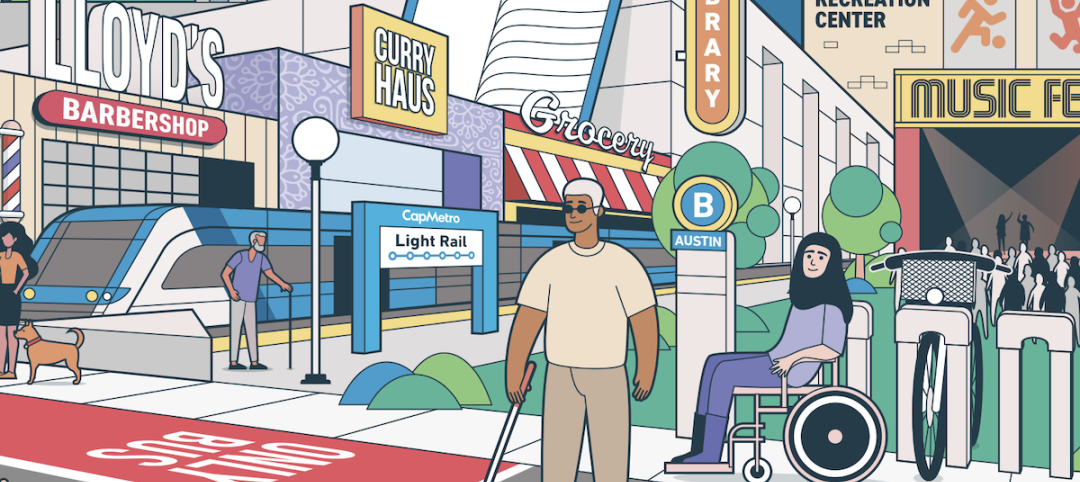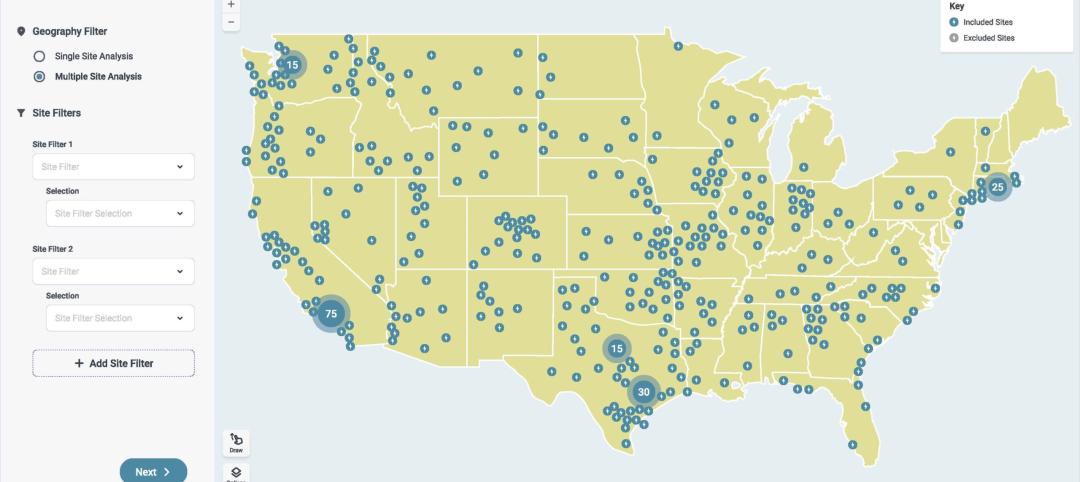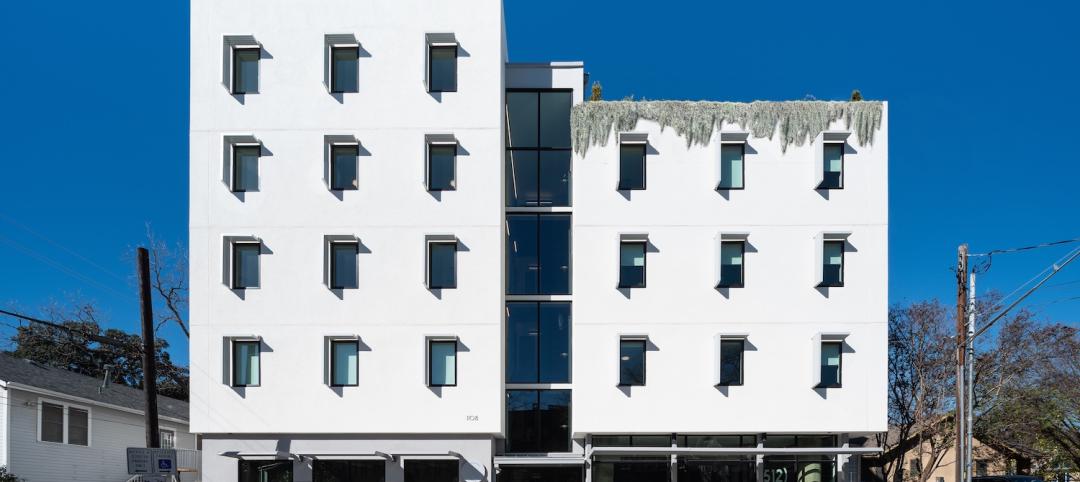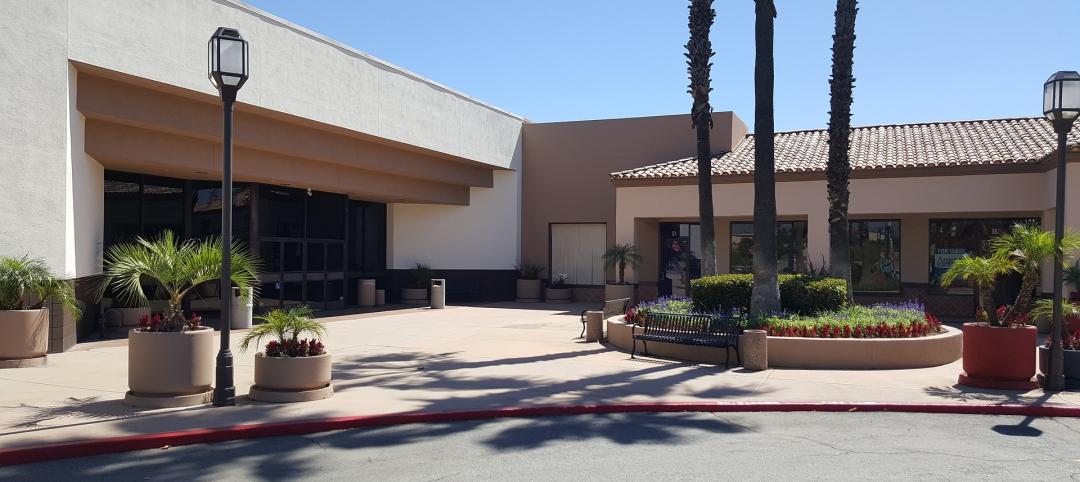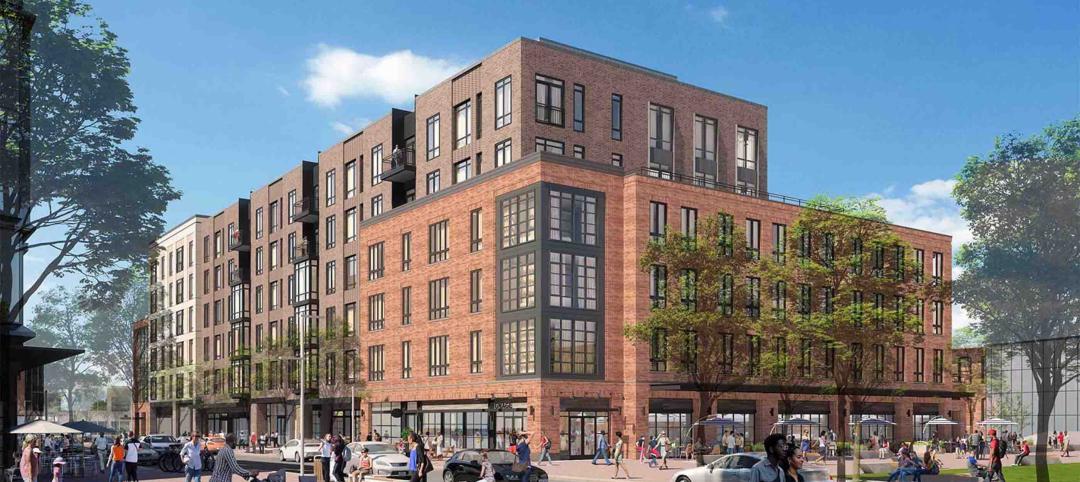The Howard and Irene Levine Senior Community, designed by KFA Architecture for Mercy Housing of California, provides badly needed housing for Los Angeles veterans and low-income seniors. The six-story, 69,300 sf building in West Los Angeles was constructed on a city-owned, former LADOT parking lot—a large area of underutilized space. It was designed to replace public parking for neighborhood merchants and a synagogue, as well as for tenants within a 73-car underground garage.
Above the parking levels, the structure provides 48 units of housing for homeless senior veterans and low-income seniors earning at or below 30 percent and 60 percent of the area median income. Rents range between $456 and $976 per month.
The building sports open corridors, allowing for natural ventilation and light into the interior. A large courtyard at the third-floor level provides a central gathering space with views of the Hollywood Hills. The courtyard is surrounded by a community room, an exercise room, and on-site support and service offices led by New Directions for Veterans.
Smaller terraces throughout the building offer quieter seating nooks. The roof deck is adorned with community garden planters and informal seating. Recessed entry doors in alcoves provide a sense of identity for each unit. The Community is walkable and close to transit, markets, cafes, clinics, and other community services. The project compliments the surrounding neighborhood’s fabric.

Strategically Designed for Seniors and Vets
“Our design team viewed this project as an opportunity to provide a healthy and social environment for seniors, with varied spaces that foster different levels of privacy and community interaction,” said KFA Senior Associate, Kristyn Cosgrove, AIA.
All units are designed for accessibility and mobility. All residents have access to a laundry room on their floor. The series of smaller outdoor spaces allow opportunities for people to gather outside in intimate groups. Rooftop solar panels and gray water harvesting for irrigation contribute to a projected LEED Gold rating.
Owner and/or developer: Mercy Housing California
Design architect: KFA Architecture
Architect of record: KFA Architecture
Mechanical & Plumbing engineer: Hellman & Lober
Electrical Engineer: OMB Electrical Engineers
Structural engineer: Englekirk
General contractor: Dreyfuss Construction
Construction Manager: AMJ Construction Management


Related Stories
Transit Facilities | Dec 4, 2023
6 guideposts for cities to create equitable transit-oriented developments
Austin, Texas, has developed an ETOD Policy Toolkit Study to make transit-oriented developments more equitable for current and future residents and businesses.
Multifamily Housing | Nov 30, 2023
A lasting housing impact: Gen-Z redefines multifamily living
Nathan Casteel, Design Leader, DLR Group, details what sets an apartment community apart for younger generations.
Products and Materials | Nov 30, 2023
Top building products for November 2023
BD+C Editors break down 15 of the top building products this month, from horizontal sliding windows to discreet indoor air infusers.
Engineers | Nov 27, 2023
Kimley-Horn eliminates the guesswork of electric vehicle charger site selection
Private businesses and governments can now choose their new electric vehicle (EV) charger locations with data-driven precision. Kimley-Horn, the national engineering, planning, and design consulting firm, today launched TREDLite EV, a cloud-based tool that helps organizations develop and optimize their EV charger deployment strategies based on the organization’s unique priorities.
MFPRO+ Blog | Nov 27, 2023
7 ways multifamily designers can promote wellness in urban communities
Shepley Bulfinch's Natalie Shutt-Banks, AIA, identifies design elements that multifamily developers can use to maximize space while creating a positive impact on residents and the planet
MFPRO+ New Projects | Nov 21, 2023
An 'eco-obsessed' multifamily housing project takes advantage of downtown Austin’s small lots
In downtown Austin, Tex., architecture firm McKinney York says it built Capitol Quarters to be “eco-obsessed, not just eco-minded.” With airtight walls, better insulation, and super-efficient VRF (variable refrigerant flow) systems, Capitol Quarters uses 30% less energy than other living spaces in Austin, according to a statement from McKinney York.
MFPRO+ News | Nov 21, 2023
California building electrification laws could prompt more evictions and rent increases
California laws requiring apartment owners to ditch appliances that use fossil fuels could prompt more evictions and rent increases in the state, according to a report from the nonprofit Strategic Actions for a Just Economy. The law could spur more evictions if landlords undertake major renovations to comply with the electrification rule.
MFPRO+ News | Nov 21, 2023
Underused strip malls offer great potential for conversions to residential use
Replacing moribund strip malls with multifamily housing could make a notable dent in the housing shortage and revitalize under-used properties across the country, according to a report from housing nonprofit Enterprise Community Partners.
MFPRO+ News | Nov 21, 2023
Renters value amenities that support a mobile, connected lifestyle
Multifamily renters prioritize features and amenities that reflect a mobile, connected lifestyle, according to the National Multifamily Housing Council (NMHC) and Grace Hill 2024 Renter Preferences Survey.
Sustainability | Nov 20, 2023
8 strategies for multifamily passive house design projects
Stantec's Brett Lambert, Principal of Architecture and Passive House Certified Consultant, uses the Northland Newton Development project to guide designers with eight tips for designing multifamily passive house projects.



